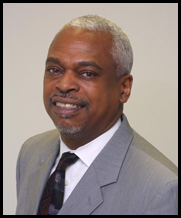Selma to Montgomery March Marks a New Phase for the Civil and Human Rights Movement
By Wade Henderson
 This week’s 47th commemoration of the Bloody Sunday March of 1965 marks a new phase in the civil rights movement. It represents a turning point for people from all backgrounds, who are joining together, not only to remember our shared past, but also to fight for a shared future. It’s a moment of recognition from all sides that, though our nation has progressed since 1965, we are not yet finished with the struggle to include everyone in the fullness that American life has to offer.
This week’s 47th commemoration of the Bloody Sunday March of 1965 marks a new phase in the civil rights movement. It represents a turning point for people from all backgrounds, who are joining together, not only to remember our shared past, but also to fight for a shared future. It’s a moment of recognition from all sides that, though our nation has progressed since 1965, we are not yet finished with the struggle to include everyone in the fullness that American life has to offer.
Until recently, efforts to undermine civil and human rights had taken a subtler approach than in times past. The targets have diversified, the rhetoric has evolved. The deadly violence that once denied people their most basic rights – to vote, to attend public schools, to climb the economic ladder, and to march – has today been masked by a more genteel language, and replaced with a more systemic type of discrimination. Yet the efforts are still pernicious.
But Alabama’s H.B. 56, by targeting Latinos and immigrant populations for harassment and arrest, has resurrected the dark days of fearmongering and racism. Under this law, anyone who “looks foreign” is a target of a law that will be enforced by racial profiling. Meanwhile, across the country, voter suppression laws are making it increasingly harder for people of all backgrounds – particularly minorities – to participate in the democratic process.
The violence surrounding the first march from Selma to Montgomery in 1965 was a climactic event for our nation and led to the introduction and passage of the Voting Rights Act of 1965. It cost the lives of men like Jimmie Lee Johnson, an African-American protester who was murdered while protecting his mother, and Reverend James Reeb, a White minister from Boston who was savagely beaten to death and denied treatment by Selma’s public hospital. But they did not die in vain. Days later, President Johnson’s speech a joint session of Congress summed up the importance of fighting these injustices saying ‘‘their cause must be our cause too. Because it is not just Negroes, but really it is all of us, who must overcome the crippling legacy of bigotry and injustice.”
Now is the time to repeal the most recent spate of oppressive and backward-looking laws, which seek to revive the “legacy of bigotry and injustice” that President Johnson said we would overcome. H.B. 56 has kept children from attending school, stopped mothers and fathers from working, and isolated families who live in fear of being profiled or harassed. Voter suppression has once again returned in the form of narrowed voter windows, burdensome voter ID laws, and restrictions on registration.
Today’s repressive laws in Alabama and elsewhere recall the sins of the past. And this week, individuals of conscience from every background revive the spirit of Dr. King, Jimmie Lee Jones, Reverend Reeb, and countless others who were bold enough to stand up against naked bigotry when their lives were at stake.
Bigotry can’t be tweaked, it cannot hide behind evolved rhetoric or a genteel denial of freedom, and it cannot be allowed to metastasize within an America that’s as good as its ideals. And so we all will continue to march – together.
Wade Henderson is the president and CEO of The Leadership Conference on Civil and Human Rights

